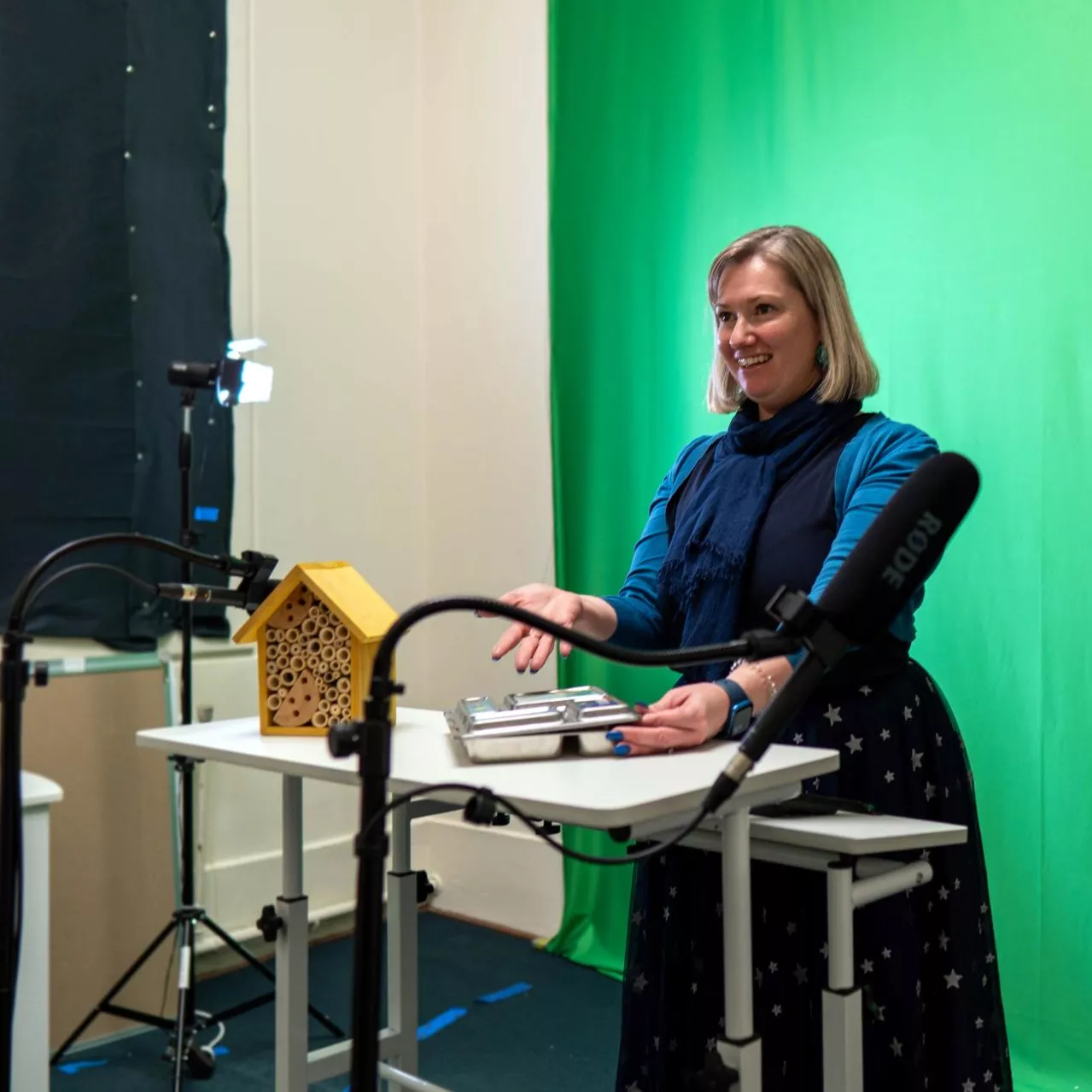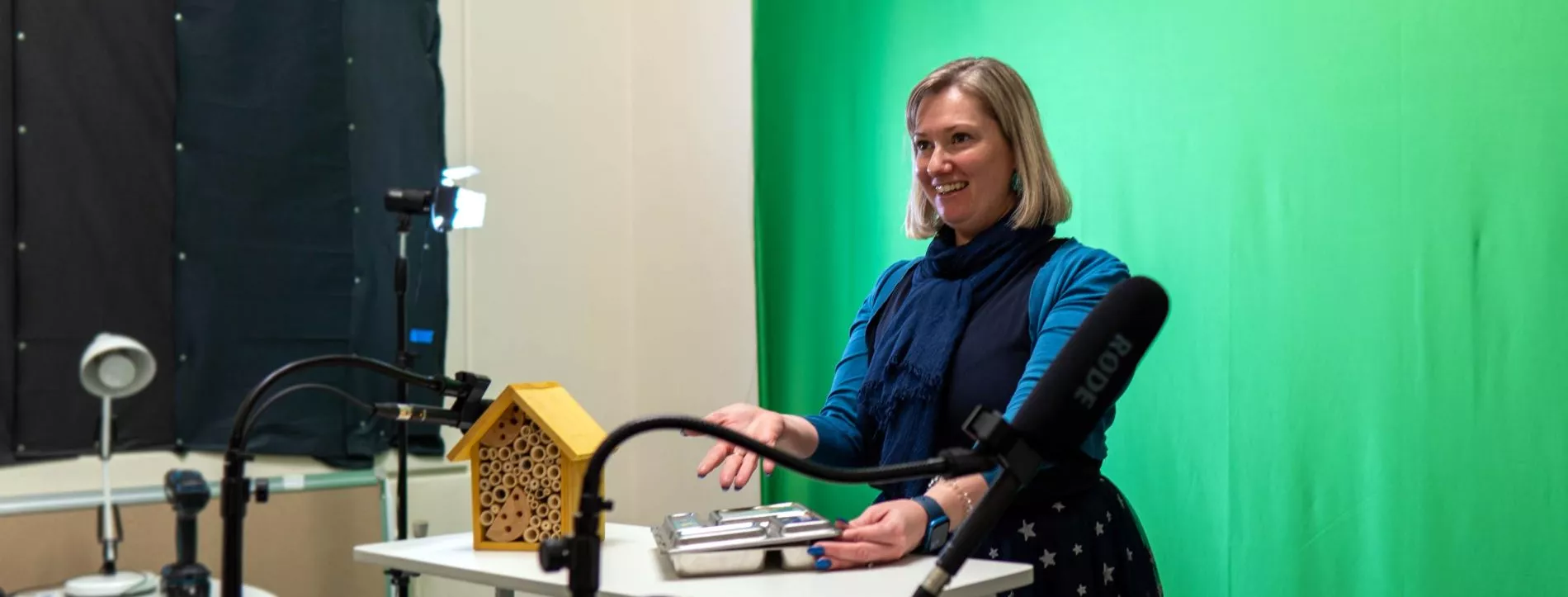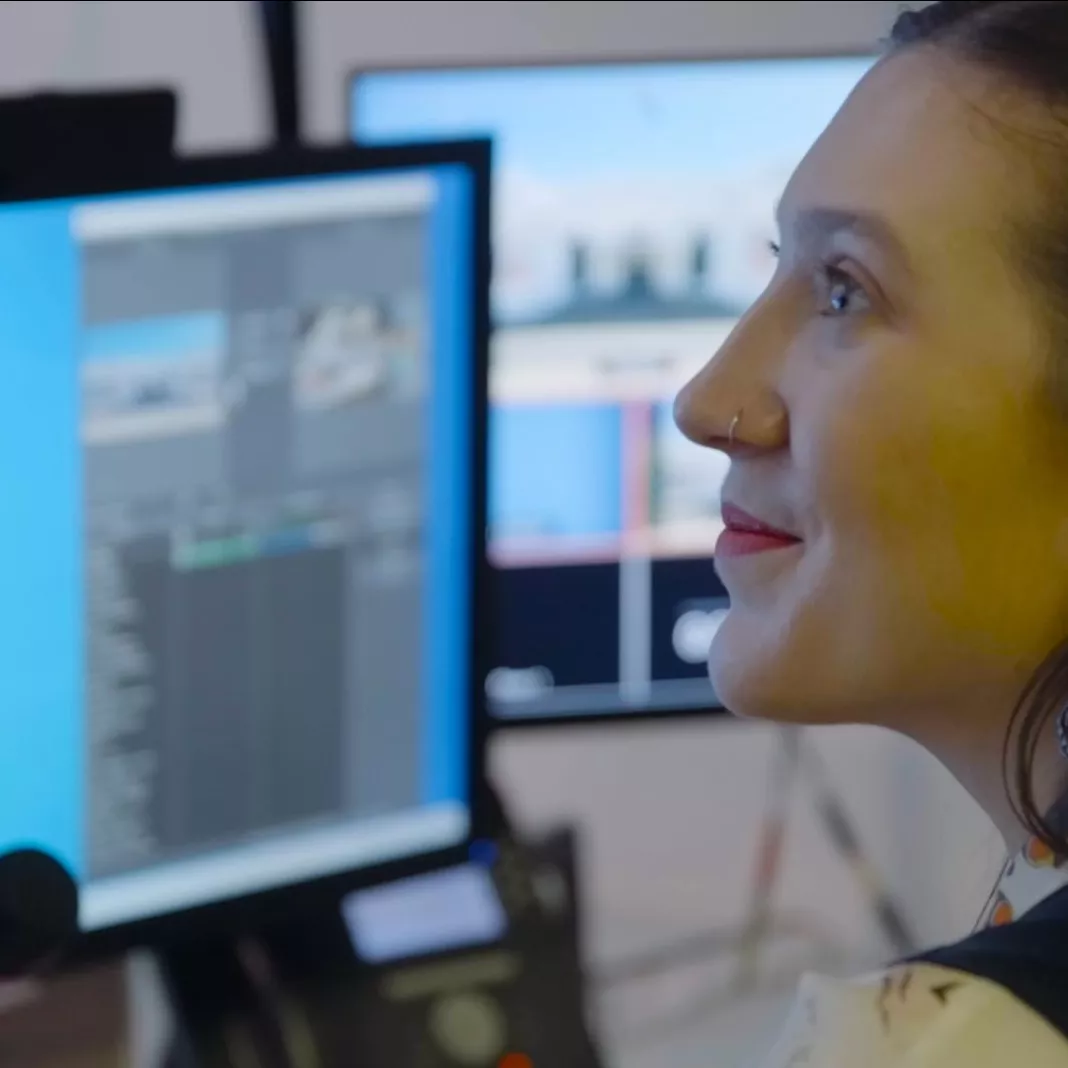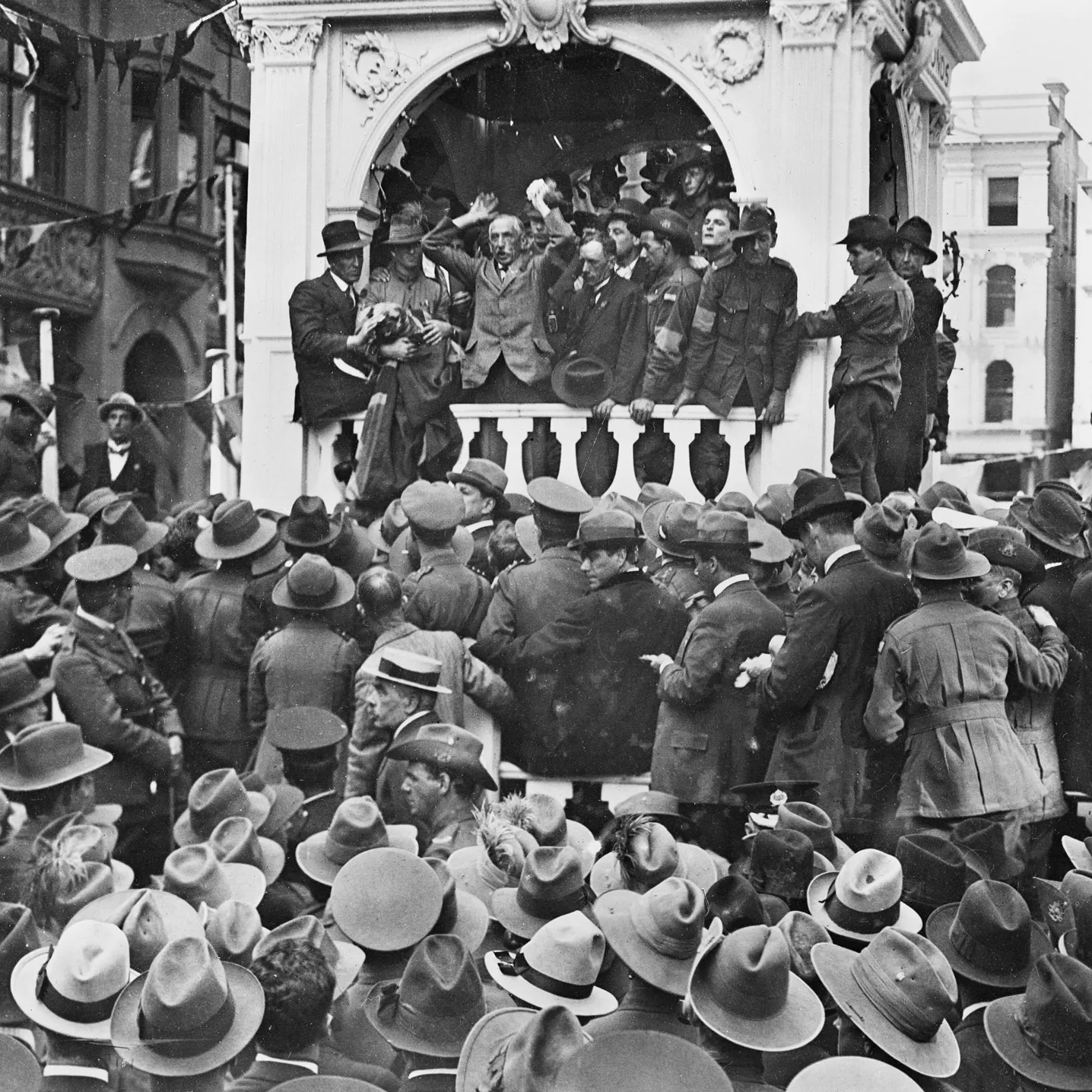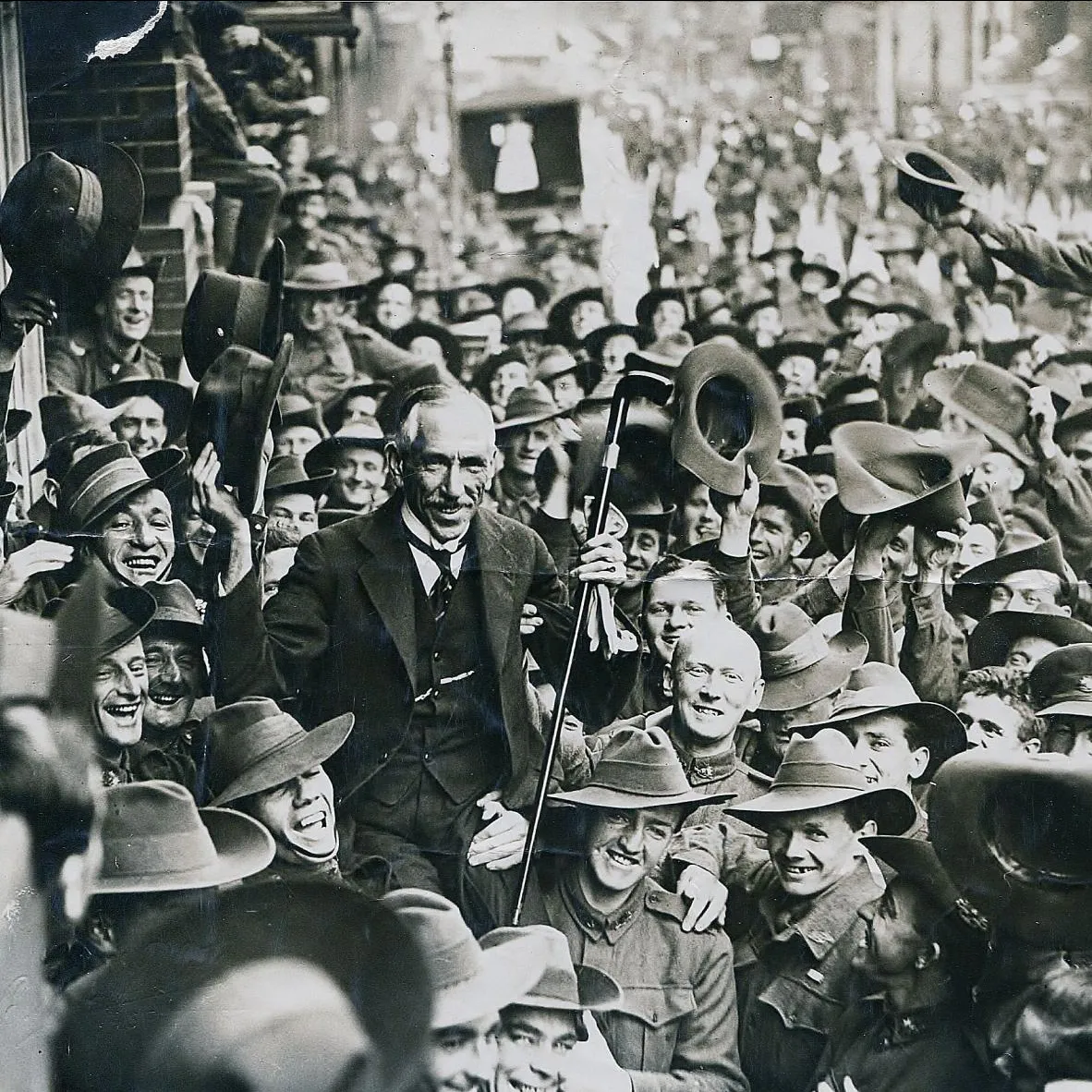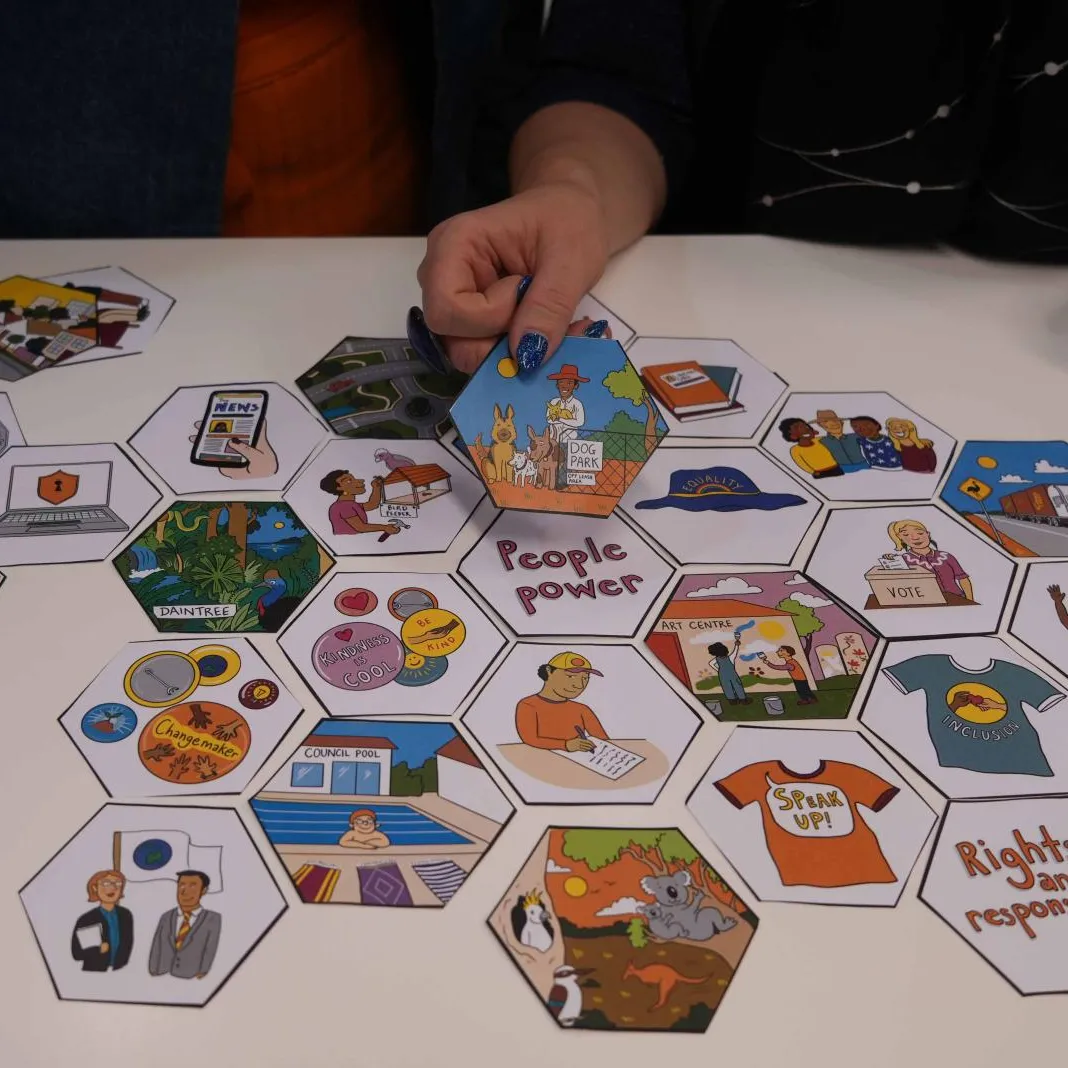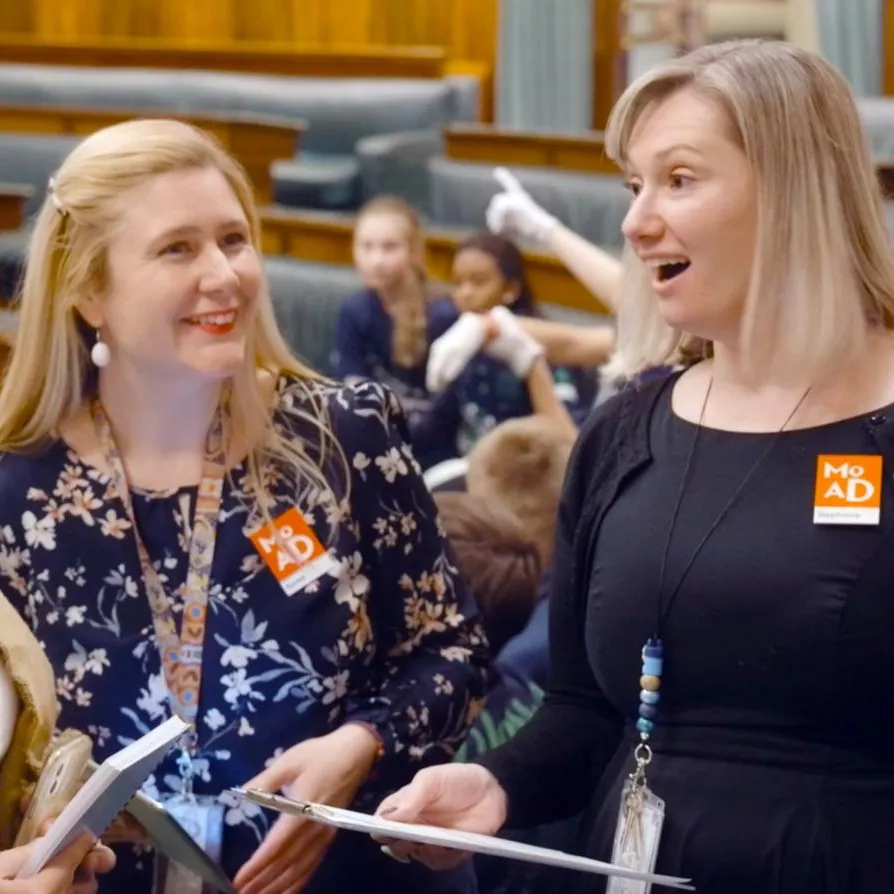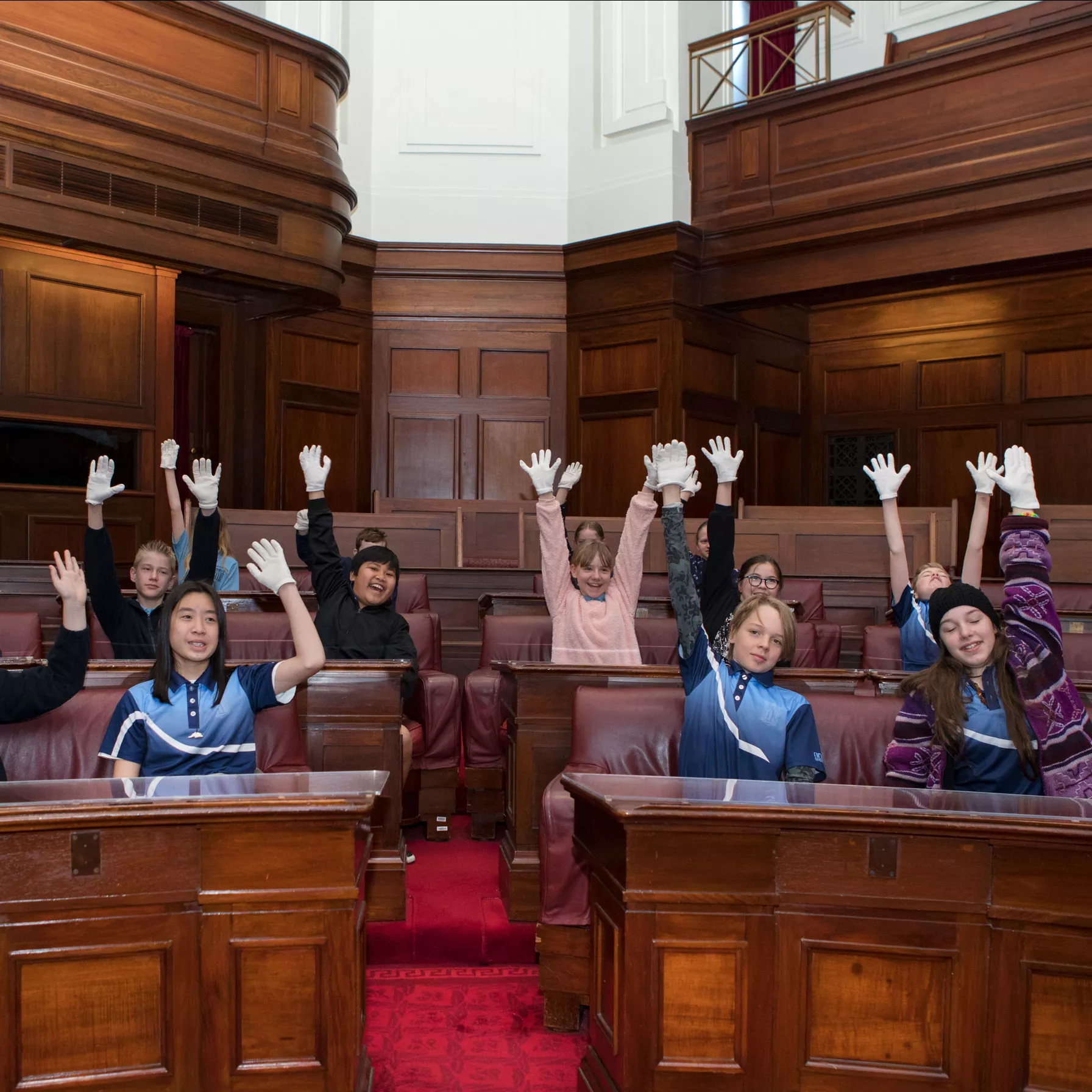You, Me and Sustainability Digital Workshop
Curriculum Links:
Years:
Kindergarten-8
Digital experience
Cost
Free
Through discussion and real-world examples students consider simple changes they can make in their everyday lives to support sustainability. This is a great workshop to hook students in at the beginning of an inquiry or extend students' learning in the classroom.
Students will:
- visit special places in Old Parliament House
- participate in rich discussion around helping the environment
- connect with stories about young people making positive changes in the area of sustainability
- reflect on how they can be sustainable global citizens
- use object interpretation to solve problems around waste.
Key information
You will need a Zoom account connected to an interactive whiteboard in your classroom.
We will send you a Zoom link upon registration.
We offer test connections to any teachers who would like to check in before the program.
30 minutes
5–30
For engagement and meaningful interaction with students, we request a maximum of 30 students for each booking.
Please email digitalexcursions@moadoph.gov.au or call 02 6270 8222 with any changes or cancellations.
Check our Terms and conditions for information about changing or cancelling programs.
Your digital program can be recorded to support students with additional learning needs.

